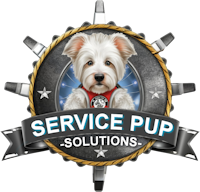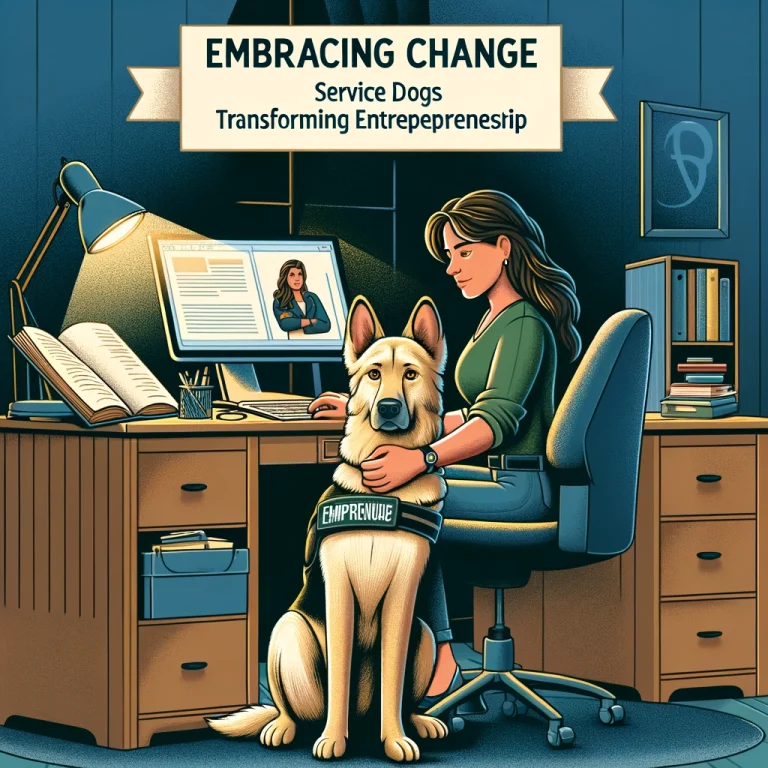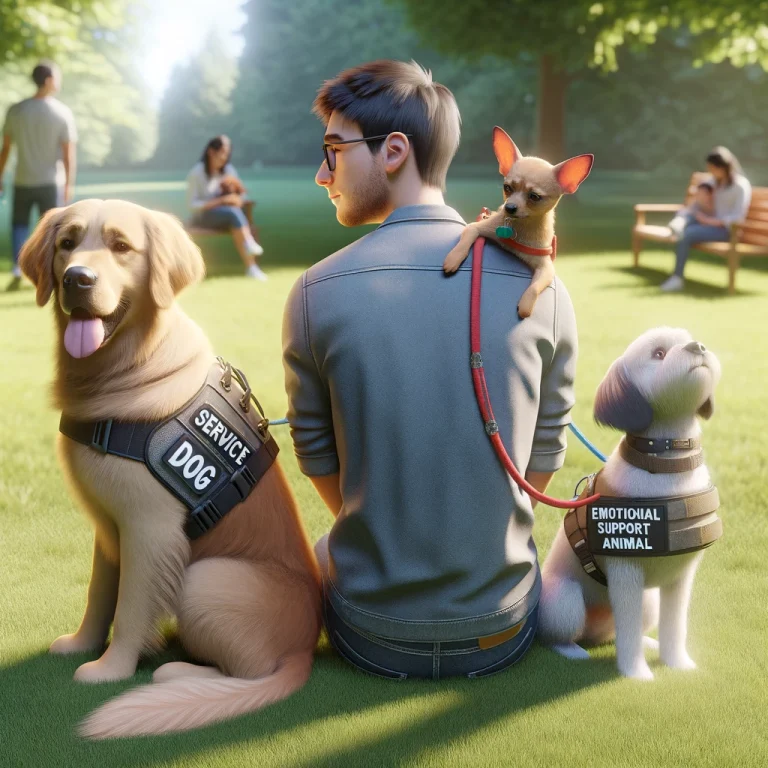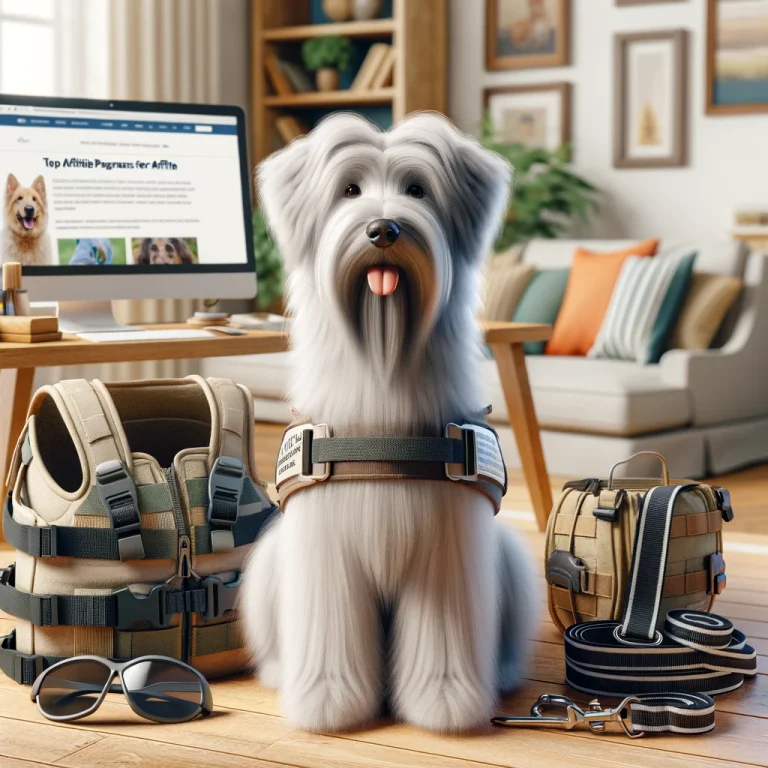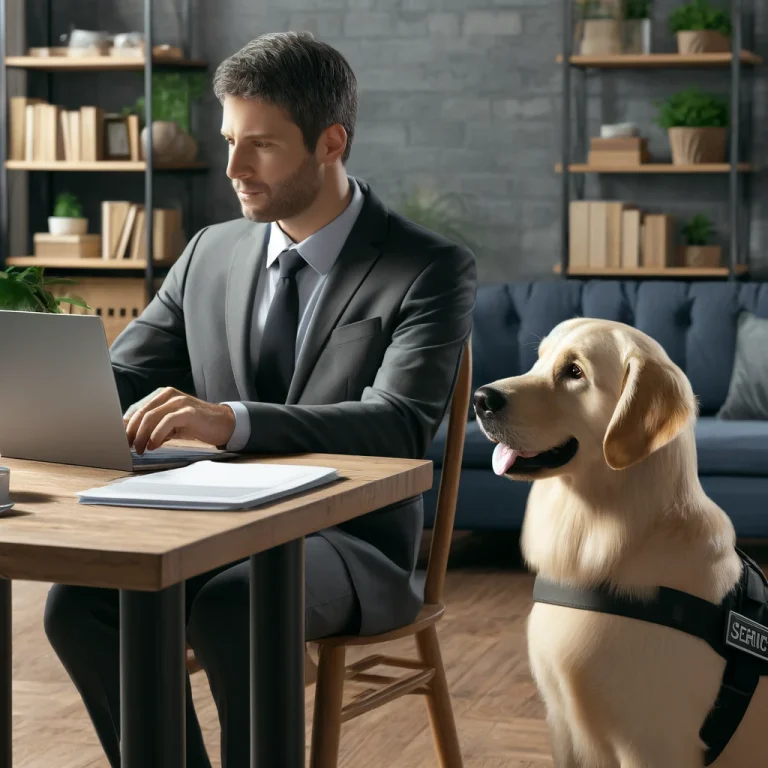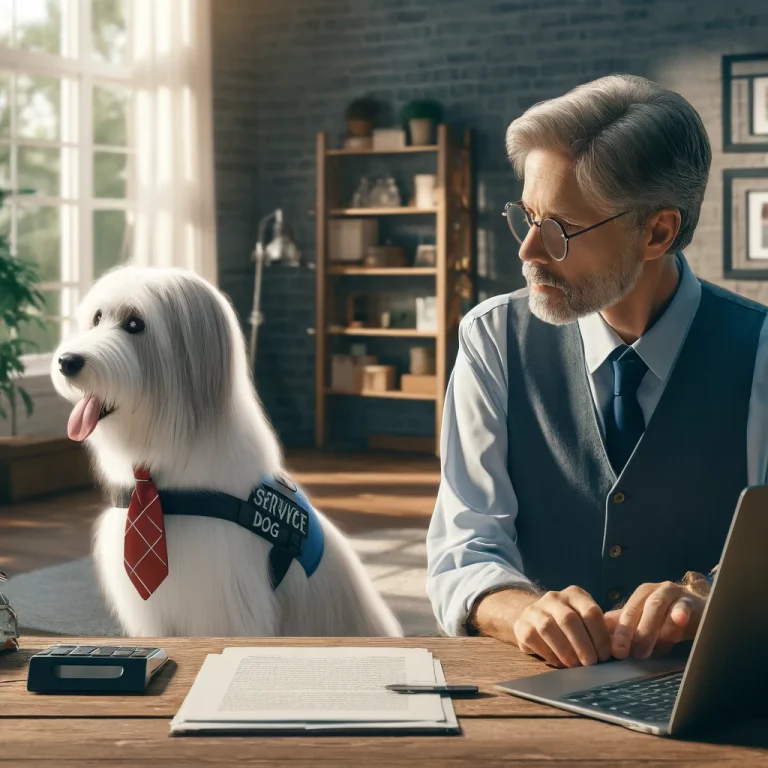Training a service dog is a rewarding journey that transforms a playful pup into a professional helper. Understanding the Service Dog Training Stages, mastering Puppy Training Basics, and advancing to Advanced Service Dog Skills are essential steps in this process. In this guide, we’ll chart your service dog’s training journey from start to finish, ensuring your dog is well-prepared to support you.
Why Training Your Service Dog Matters
Training your service dog is not just about teaching commands; it’s about creating a reliable partner who can assist you in daily life. Well-trained service dogs can provide emotional support, perform essential tasks, and enhance the quality of life for their handlers. By following a structured training program, you ensure your service dog is equipped with the skills needed to help you effectively.
The benefits of proper training are manifold. A well-trained service dog increases your independence by helping you perform tasks that might be challenging due to your disability. They also enhance your safety by alerting you to potential dangers or medical issues. Moreover, the companionship of a trained service dog can provide emotional stability and reduce anxiety, ultimately improving your quality of life.
Service Dog Training Stages
Training a service dog involves several stages, each building upon the previous one. Understanding these stages helps you create a comprehensive training plan.
The first stage is early socialization and exposure, which is crucial for puppies. Exposing them to different environments, people, and other animals helps them become well-adjusted adults. Taking your puppy to various places such as parks, busy streets, and stores ensures they adapt to different situations. It is important to make all experiences positive, rewarding your puppy with treats and praise to create positive associations.
Next, you move on to basic obedience training. This stage lays the foundation for more advanced skills and focuses on essential commands such as sit, stay, come, and heel. Keeping training sessions short and fun helps maintain your puppy’s interest. Consistency in using commands and rewards reinforces learning, while positive reinforcement through treats and affection encourages good behavior.
After mastering basic commands, you advance to intermediate training, which involves more complex commands and skills. This includes advanced obedience commands like leave it, drop it, and wait, as well as public manners training. Teaching your dog to behave appropriately in public, such as walking calmly on a leash and ignoring distractions, is essential. During this stage, you can also start introducing simple tasks related to your disability, such as retrieving objects or pressing a button.
The final stage is advanced service dog skills training, where you teach skills tailored to your specific needs. This includes task-specific training, such as medical alerts for conditions like low blood sugar or seizures, mobility assistance tasks like retrieving items or providing balance support, and emotional support tasks like Deep Pressure Therapy. Ensuring your dog can handle various public settings, including restaurants and public transportation, is also crucial. Training your dog to respond to unexpected situations and problem-solve independently enhances their effectiveness as a service animal.
Puppy Training Basics
Starting with the basics is essential for a successful training journey. House training is one of the first steps, requiring consistency and patience. Establishing a regular schedule for taking your puppy outside, especially after eating, drinking, and waking up, is key. Choosing a designated spot for elimination and taking your puppy there consistently helps reinforce the behavior. Praising and rewarding your puppy when they eliminate in the correct spot encourages them to continue doing so.
Crate training provides a safe space for your puppy and aids in house training. Introducing the crate as a positive place with treats, toys, and comfortable bedding helps your puppy feel secure. Start with short periods in the crate and gradually increase the time. It is important to never use the crate as a punishment; it should always be a positive space.
Socialization is crucial for developing a well-rounded adult dog. Introducing your puppy to a variety of people and other animals helps them become confident and reduces fear. Ensuring all interactions are positive builds their confidence. Additionally, teaching basic commands early sets the foundation for more advanced training. Using treats to lure your puppy into a sitting position and rewarding them helps them learn the sit command. Gradually adding the stay command and rewarding your puppy when they come to you when called reinforces these behaviors. Leash training, introduced with positive reinforcement, is also essential for effective training.
Advanced Service Dog Skills
Once your dog has mastered the basics, it’s time to move on to advanced service dog skills. These skills are tailored to your specific needs and ensure your service dog can provide effective assistance. Task-specific training involves teaching your dog to perform tasks directly related to your disability, such as medical alerts, mobility assistance, or emotional support tasks like Deep Pressure Therapy. Ensuring your dog can handle various public settings and behave appropriately is crucial for their effectiveness as a service animal. Training your dog to respond to unexpected situations and solve problems independently further enhances their skills.
The Importance of Pet Insurance and Service Dog Products
Investing in pet insurance and high-quality service dog products is essential for maintaining your service dog’s health and effectiveness. Pet insurance provides financial protection for unexpected medical expenses, ensuring your service dog receives the best care without causing financial strain. Look for policies that cover routine care, emergencies, and chronic conditions.
Investing in high-quality service dog products is crucial for effective training and daily use. These products include vests and harnesses to ensure your service dog is easily identifiable and comfortable, training tools like clickers and treat pouches, and health and safety items such as grooming supplies and a well-balanced diet. ServicePupSolutions.com offers a wide range of products to support your service dog’s training and daily needs.
Real-Life Success Stories
Emily, a young woman with diabetes, successfully trained her service dog, Max, starting with puppy training basics and progressing through the service dog training stages to advanced service dog skills. Today, Max alerts Emily to low blood sugar levels, helping her manage her condition with confidence. John, a military veteran, trained his service dog, Bella, to help manage his PTSD. With the help of non-profit organizations and online courses from ServiceDogOwners.com, John taught Bella to perform tasks such as interrupting anxiety attacks and providing Deep Pressure Therapy, significantly improving his quality of life. Sarah, who has multiple sclerosis, trained her service dog, Luna, to assist with mobility tasks such as retrieving items, opening doors, and providing balance support. Through consistent training and dedication, Sarah and Luna have become an effective team, enabling Sarah to live more independently.
Conclusion: Charting Your Service Dog’s Training Journey
Training your service dog from pup to pro is a rewarding journey that requires dedication, consistency, and the right resources. By understanding the service dog training stages, mastering puppy training basics, and advancing to advanced service dog skills, you can ensure your service dog is well-prepared to support you effectively. Self-training options available through ServiceDogOwners.com can provide valuable resources and guidance throughout this journey.
By following this guide and investing in the right tools and resources, you can successfully train your service dog to become a reliable and skilled partner. Your journey with your service dog will not only improve your quality of life but also create a strong bond of trust and companionship.
At ServicePupSolutions.com, we are committed to providing the best resources and products to support your service dog’s training journey. Explore our range of products and support to ensure your service dog is trained effectively and economically.
Searching for a way to boost your income while keeping your service dog by your side? Learn how Digital Marketing and Affiliate Marketing can launch your Side Hustle or new career and increase your earnings alongside your loyal companion. Click Here to find out more and start your journey today!
